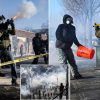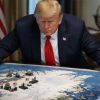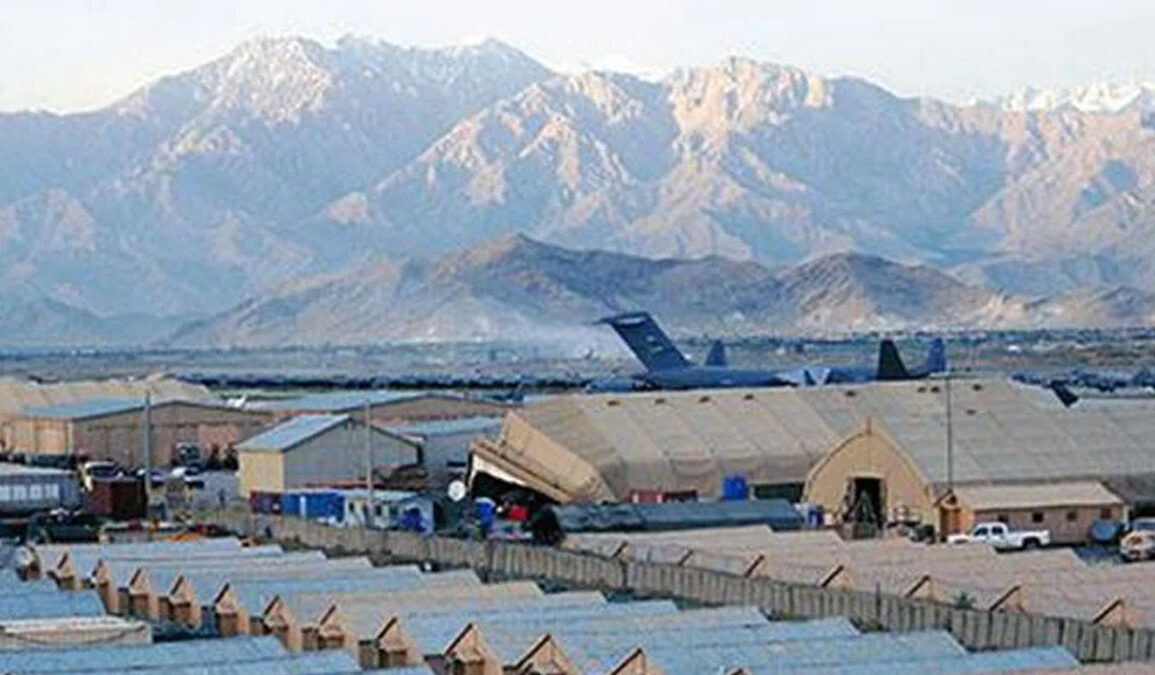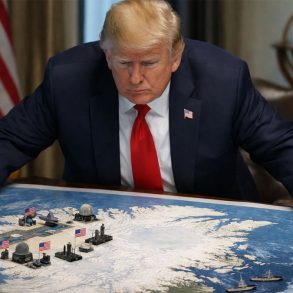A Strategic Reversal in Motion
President Donald Trump has launched a quiet but determined campaign to reclaim the Bagram Airfield in Afghanistan, the massive military base once considered the crown jewel of U.S. operations in the region. In public remarks alongside British Prime Minister Keir Starmer, Trump said, “We’re trying to get it back. We gave it to them for nothing.” His words were the first open acknowledgment of months of behind-the-scenes discussions within his administration about reestablishing control of the base.
According to CNN, conversations about Bagram’s future began as early as March. Senior national security officials, with Trump’s backing, have been assessing options and potential leverage points for securing the base’s return. The president has framed Bagram not only as a missed opportunity of the chaotic 2021 withdrawal but also as a critical piece of America’s broader strategy in countering China.
Why Trump Wants Bagram Back
Trump has not hidden his reasoning. “We want that base back, but one of the reasons we want the base is, as you know, it’s an hour away from where China makes its nuclear weapons,” he told reporters. In March, he echoed the same point, saying, “We were going to keep Bagram, not because of Afghanistan but because of China, because it’s exactly one hour away from where China makes its nuclear missiles.”
Beyond proximity to China, Trump and his advisers have cited other motivations. Bagram could serve as a hub for counterterrorism operations, particularly against ISIS. It could also provide access to Afghanistan’s vast mineral resources, which include rare earth elements vital for high-tech manufacturing. “We were going to keep a small force on Bagram,” Trump said earlier this year, stressing that the decision to abandon it under President Biden was, in his view, a costly mistake.
How Negotiations Are Unfolding
The talks have involved a mix of diplomacy and leverage. In March, Adam Boehler, Trump’s special hostage envoy, and veteran diplomat Zalmay Khalilzad met directly with Taliban foreign minister Amir Khan Muttaqi at Kabul’s airport. The Taliban later confirmed that the meeting discussed “developing bilateral relations between the two countries, issues related to citizens, and investment opportunities in Afghanistan.”
Trump suggested that the United States has bargaining chips the Taliban may find difficult to ignore. “We’re trying to get it back because they need things from us,” he explained. Though he did not specify what the Taliban “need,” analysts believe this could range from international recognition to economic aid.
The Taliban’s Public Position
Officially, Taliban leaders have rejected the idea of an American return to Bagram. Zakir Jalal, a Taliban foreign ministry official, said the possibility of U.S. troops returning was “completely rejected during the Doha talks and agreement.” He added that “throughout history, Afghans have not accepted a military presence,” making clear the Taliban’s sensitivity to foreign troops.
Yet Jalal’s statement was not entirely closed. He wrote that Afghanistan was open to “economic and political relations based on mutual respect and common interests.” This softer language suggests that while a military presence is off the table in public rhetoric, the Taliban may be leaving themselves room for negotiations on other forms of engagement.
The Shadow of China
China has become a central factor in the debate over Bagram. Trump has repeatedly warned that Beijing could try to fill the vacuum left by the U.S. withdrawal. “It’s an hour away from where they make their missiles,” Trump emphasized while describing why the base is strategically indispensable.
China, for its part, has denied having any presence at Bagram. A spokesman for the Chinese foreign ministry stated that “China respects Afghanistan’s territorial integrity and sovereignty” and insisted that “the future of Afghanistan should be in the hands of Afghan people.” However, experts like Bill Roggio of the Foundation for Defense of Democracies caution that “China most certainly would do everything it can to entice the Taliban to keep the U.S. out of Afghanistan and has far more leverage and enticements to make this happen.”
And China has a vested interest. The mineral resources in Afghanistan are valued at perhaps hundreds of billions of dollars. China has already begun negotiations in this respect.
Afghanistan’s Refusal as a Negotiating Stance
Although the Taliban have dismissed Trump’s push in public, many observers view their position as a bargaining tactic rather than a final decision. Afghanistan’s rulers remain desperate for international recognition, aid, and investment. Trump himself appears confident that Washington’s leverage can bring results. “We want that base back,” he declared.
The outlook hinges on whether the Taliban can be convinced that some form of U.S. presence at Bagram serves their interests. By releasing detained Americans earlier this year, including Delta mechanic George Glezmann and later a British couple, the Taliban signaled a willingness to normalize relations with the United States. Such gestures suggest they may be preparing the ground for a more substantial deal.
The fate of Bagram Airfield remains uncertain, but Trump has turned it into a live issue once again. For him, regaining the base is not about reliving the war in Afghanistan. It is about positioning the United States to check China’s growing power and reassert influence in a region that many believe was abandoned too hastily.
The Taliban’s public refusals may be a mask for private calculations. With Trump signaling that the United States has resources the Taliban “need,” the possibility of a deal remains alive. Whether through concessions, investments, or diplomatic normalization, Trump believes the path to Bagram is still open.
NP Editor: I believe Trump will get Greenland, too….








